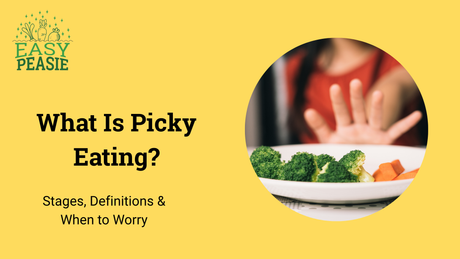Oh, the joys of mealtime with little ones! Picky eating in children can be a puzzling adventure for parents, leaving you scratching your head and wondering what's causing all the food fuss. Fret not! We're here to decode the potential causes behind picky eating and shed some light on this common childhood behavior. Let's dive in and explore the mysteries of fussy little eaters!
1. The Age-Old Nature of Neophobia
Neophobia, or the fear of new foods, is a typical developmental phase that many children go through. During this stage, kids tend to reject unfamiliar foods as a survival instinct. It's their way of staying cautious about potential dangers, as they're naturally wired to prefer familiar foods for safety.
2. Sensory Sensitivities and Texture Troubles
Some picky eaters might be sensitive to certain textures, colors, or smells of foods. A child's sensory system can be more sensitive, making them averse to certain textures or tastes. For instance, they might avoid foods that feel slimy or foods that have a strong aroma.
3. The Power Play of Independence
Mealtime can become a stage for testing boundaries and asserting independence. Picky eating might be a way for your child to express their autonomy by making food choices. Remember, they're developing their personalities and testing the waters in various aspects of life, including food preferences.
4. Tummy Troubles and Digestive Woes
Occasionally, picky eating could be linked to digestive discomfort. If your child has experienced tummy troubles or discomfort after eating certain foods, they might avoid those foods to prevent unpleasant feelings in the future.
5. The Influence of Food Environment
Food environment plays a significant role in shaping children's eating habits. If they see parents or siblings being picky eaters or making negative comments about certain foods, they're more likely to mimic those behaviors. Creating a positive food environment can help encourage more adventurous eating.
6. Changing Taste Preferences
Children's taste preferences can change as they grow. Foods they once loved might suddenly become less appealing, and vice versa. It's a natural part of their development, and it's essential to adapt to their evolving tastes without pressure.
7. Coping with Control and Emotions
Children might use picky eating as a way to cope with feelings of control or emotions. When they feel overwhelmed, anxious, or stressed, they might resort to refusing certain foods as a means of asserting control over a situation.
8. Food Allergies or Sensitivities
Undiagnosed food allergies or sensitivities can also contribute to picky eating behavior. If certain foods cause discomfort or reactions, children might avoid them altogether to prevent unpleasant symptoms.
9. Distractions and Timing Matters
Mealtime distractions, such as watching TV or playing with toys, can divert children's attention away from their meals. Timing also matters – if they're too hungry or too full, they might not be open to trying new foods.
10. Respect for Individuality
Lastly, it's essential to recognize that each child is unique. Some children might naturally be more adventurous eaters, while others take time to warm up to new foods. Respect your child's individuality and avoid comparing them to others.
Final Thoughts
Picky eating in children is a common journey that many parents navigate. Understanding the potential causes behind this behavior can help you approach mealtimes with patience, creativity, and understanding. Embrace the adventure of introducing new foods, and remember that with a positive and supportive food environment, your little one's eating habits can evolve over time. So, take a deep breath, keep your sense of humor, and enjoy the exploration of food with your fussy little eaters!





